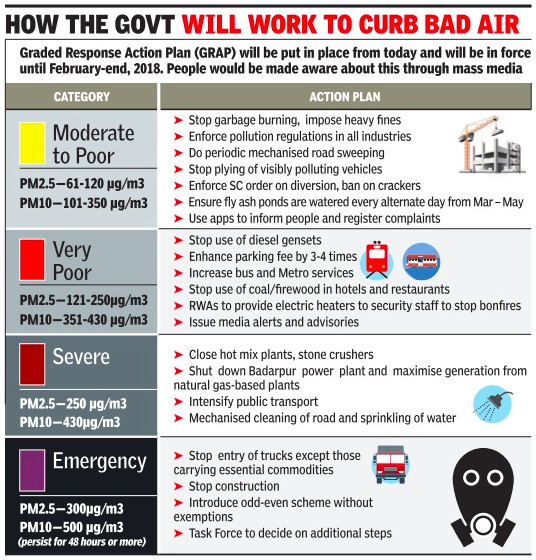900 319 0030
enquiry@shankarias.in
What is the issue?
What are the recent pollution control measures?
What is GRAP?
How does GRAP work?

How effective has GRAP been?
What are the shortfalls?
Source: Indian Express
Quick Fact
EPCA